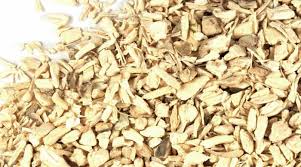Hydrangea Root Herb Benefits

Hydrangea Root Herb Benefits
Hydrangea is a genus of 70-75 species in the hydrangeaceae plant family, and have varying properties depending on the species.
Chang Shan (Dichroa Febrifuga or Dichroa Root) is the hydrangea species used in Chinese medicine and is native to eastern Asia.
Hydrangea arborescens (sevens barks, wild hydrangea) is the common hydrangea native to America.
Hydrangea Root Herb Benefits
The compounds in hydrangea root have been used to treat autoimmune diseases and kill parasites, used as a diuretic and blood cleanser, and used to remove calcification to treat bladder and kidney stones.
Hydrangea Root (Dichroa Febrifuga) And Autoimmune Diseases
The hydrangea root species, Chang Shan (Dichroa Febrifuga or Dichroa Root), contains a compound called febrifugine from which the halofuginone drug is derived, and is useful in treating autoimmune diseases.
Under normal circumstances the body’s immune system produces Th17 T-cells to fight of viruses, but sometimes it can produce harmful variants that target healthy cells.
Th17 cells are associated with several autoimmune diseases including arthritis, lupus, psoriasis, and multiple sclerosis. Febrifugine and its halofuginone derivative selectively stop production of the harmful Th17 T-cells without harming the good T-cells.[1][2][3][4]
(Studies have been done to isolate the febrifugine compound in Chang Shan, and not for Hydrangea arborescens, making Chang Shan the confirmed source for febrifugine.)
Hydrangea Root And Parasitic Infections
The febriugine compound in Chang Shan hydrangea root is also responsible for it anti-parasitic propert. Febriugine disrupts the process of aminoacylation that allows organisms to synthesize the proteins they need to live,[5][6][7][8] effectively killing malaria in the bloodstream.
Hydrangea Root, Calcification, And Kidney Stones
The Hydrangea root species, including Hydrangea arborescens, is classified as a lithotriptic herb because of its ability to dissolve calcium deposits through its soapy[9] action.
Calcification in bones and teeth is wanted, but calcification of soft tissue is unwanted and interferes with normal cell function.
Hydrangea root has been used in traditional medicine to remove calcium stones in the bladder and kidneys, and in general to remove calcification in soft tissue.
Decalcification of soft tissue is important because it allows beneficial components to enter and clean cells of viruses and other harmful substances.
Hydrangea contains hydrangin (skimmetin), a naturally-occurring phytochemical solvent, has been implicated in hydrangea’s ability to dissolve calcium deposits.[10]
Hydrangea Root General Benefits
Hydrangea root has been used to treat inflamed prostrate glands. Hydrangea’s anti-inflammatory properties stem from its ability to inhibit pro-inflammatory compounds such as nitric oxide (NO), prostaglandin E2 (PGE2), and tumor necrosis factor-α (TNF-α).[11][12]
Hydrangea root is a diuretic and increases urination to clean the urinary tract. It is important to drink between 3/4 to 1 gallon of water a day to make sure you remain hydrated.
Hydrangea is a mineral-rich plant containing magnesium, calcium, iron, potassium, phosphorus, and sulfur. Hydrangea root also contains high levels of flavonoids, kaempferol, quercetin, saponin, and volatile oil that are protective against cell damage.
Learn more about hydrangea and other herbs used in Dr. Sebi’s methodology and how to use them in my book Alkaline Herbal Medicine.
Learn About Foods That Support Health and Vitality on the Dr. Sebi Nutritional Guide »
Sources:
[1] Halofuginone and other febrifugine derivatives inhibit prolyl-tRNA synthetase
[2] Harvard Magazine – Febrifugine
[3] Secrets of ancient Chinese remedy revealed
[4] Th17 Response and Inflammatory Autoimmune Diseases
[5] ATP-directed capture of bioactive herbal-based medicine on human tRNA synthetase
[6] Chinese Medicinal Herb Yields Its Secrets
[7] AN ANTIMALARIAL ALKALOID FROM HYDRANGEA. II. ISOLATION
[8] Anti-malarial Activity of Leaf-Extract of Hydrangea
[9] UMBELLIFERONE
[10] Hydrangea: A Pretty Flower with a Nutritional Punch
[11] Water extract of processed Hydrangea macrophylla (Thunb.) Ser. leaf attenuates the expression of pro-inflammatory mediators by suppressing Akt-mediated NF-κB activation.
[12] Skimmin, a Coumarin from Hydrangea paniculata, Slows down the Progression of Membranous Glomerulonephritis by Anti-Inflammatory Effects and Inhibiting Immune Complex Deposition.






